1. Summarise… In Questions.

My worst fear on a test? The feeling of getting an exam paper in front of me, and not being able to remember anything, while back at home when reading the book I thought I knew everything. Sounds familiar? In that case, it may help to try these techniques. They help you practice retrieving information, rather than being familiar with the concepts you are studying. These have helped me loads, and I’m actually pretty convinced that these techniques are better than many others I used to apply, like rereading and regular summarizing. Hopefully they work for others as well :)
1. Summarise… in questions.
How do you do it? Instead of writing down facts, you convert facts to questions. Underneath the these, you answer them in your own words. This is technically the baby of summaries and flashcards. Don’t do this with every small fact, but rather convert several to one question, and omit the less important things always. You’re not going to remember every detail and most teachers don’t require you to (of course if they do, study them lol) .
Why would you do it? It is proven that asking yourself questions about the material enhances understanding and remembrance. Additionally, you can instantly quiz yourself on the material. Only reading your summary is not going to help you much with remembering, but actively retrieving information is! Also, when you’re reading and summarising the textbook throughout the semester, you’re already getting your study material for the test ready => less stress and work for when you gotta study.
2. Teach your peer / pet / pillow
How do you do it? Explain key concepts (many books provide these at the beginning or end of the chapter) to anyone who wants to listen. Don’t have anyone who wants to? Your cat probably won’t mind (but who knows what cats want tbh) and your reflection is always listening to you as well.
Why would you do it? Explaining things to other people requires you to really understand what you are talking about, and you will more quickly find holes in your knowledge once you’re not able to explain it. Additionally, you’re probably gonna have to explain stuff on tests so it’s good practice.
3. Re-do your homework
How do you do it? Pretty obvious. Well, don’t write every answer down in detail again! For maths it may be useful to only tackle the most important exercises again, while for history you may want to spend an hour to just go over them all and test in your head if you can form a sensible answer.
Why would you do it? Going over the homework is always a good idea because 1) the theory is practically applied in those questions, so you have to think about what you have learned, enhancing integration, and 2) teachers are lazy and will often reuse or slightly modify textbook questions.
More Posts from Risingstarling and Others

Know your bricks!
Hi! I want to draw people with a lot of emotion captured, but I don't really know how to do it so that the viewer feels something. I want to show more emotion, I guess? (This was really unclear, I know :0) Thank you so much!
What a great question, @everchangingotps!
I think studying anatomy helps a lot. Facial muscles are a bit complex, and they move in different ways to make the frowns and smiles happen!
Here’s a few great resources I found:
Human Anatomy Fundamentals, Mastering facial Expressions - super comprehensive. Definitely worth the read!
Muscles of Facial Expression - Anatomyzone
Drawing facial expressions - Xia Taptara on Youtube
Folder of Facial Expression Tutorials! Super useful
Expression tutorial by shingworks - cartoon style
If you liked this post, please consider reblogging this post so more artists can see it!
Also it would mean the world to me if you checked out my art at @astrikos!
Thank you for your continued support!
Resources For Writing Sketchy Topics

Medicine
A Study In Physical Injury
Comas
Medical Facts And Tips For Your Writing Needs
Broken Bones
Burns
Unconsciousness & Head Trauma
Blood Loss
Stab Wounds
Pain & Shock
All About Mechanical Injuries (Injuries Caused By Violence)
Writing Specific Characters
Portraying a kleptomaniac.
Playing a character with cancer.
How to portray a power driven character.
Playing the manipulative character.
Portraying a character with borderline personality disorder.
Playing a character with Orthorexia Nervosa.
Writing a character who lost someone important.
Playing the bullies.
Portraying the drug dealer.
Playing a rebellious character.
How to portray a sociopath.
How to write characters with PTSD.
Playing characters with memory loss.
Playing a pyromaniac.
How to write a mute character.
How to write a character with an OCD.
How to play a stoner.
Playing a character with an eating disorder.
Portraying a character who is anti-social.
Portraying a character who is depressed.
How to portray someone with dyslexia.
How to portray a character with bipolar disorder.
Portraying a character with severe depression.
How to play a serial killer.
Writing insane characters.
Playing a character under the influence of marijuana.
Tips on writing a drug addict.
How to write a character with HPD.
Writing a character with Nymphomania.
Writing a character with schizophrenia.
Writing a character with Dissociative Identity Disorder.
Writing a character with depression.
Writing a character who suffers from night terrors.
Writing a character with paranoid personality disorder.
How to play a victim of rape.
How to play a mentally ill/insane character.
Writing a character who self-harms.
Writing a character who is high on amphetamines.
How to play the stalker.
How to portray a character high on cocaine.
Playing a character with ADHD.
How to play a sexual assault victim.
Writing a compulsive gambler.
Playing a character who is faking a disorder.
Playing a prisoner.
Portraying an emotionally detached character.
How to play a character with social anxiety.
Portraying a character who is high.
Portraying characters who have secrets.
Portraying a recovering alcoholic.
Portraying a sex addict.
How to play someone creepy.
Portraying sexually/emotionally abused characters.
Playing a character under the influence of drugs.
Playing a character who struggles with Bulimia.
Illegal Activity
Examining Mob Mentality
How Street Gangs Work
Domestic Abuse
Torture
Assault
Murder
Terrorism
Internet Fraud
Cyberwarfare
Computer Viruses
Corporate Crime
Political Corruption
Drug Trafficking
Human Trafficking
Sex Trafficking
Illegal Immigration
Contemporary Slavery
Black Market Prices & Profits
AK-47 prices on the black market
Bribes
Computer Hackers and Online Fraud
Contract Killing
Exotic Animals
Fake Diplomas
Fake ID Cards, Passports and Other Identity Documents
Human Smuggling Fees
Human Traffickers Prices
Kidney and Organ Trafficking Prices
Prostitution Prices
Cocaine Prices
Ecstasy Pills Prices
Heroin Prices
Marijuana Prices
Meth Prices
Earnings From Illegal Jobs
Countries In Order Of Largest To Smallest Risk
Forensics
arson
Asphyxia
Blood Analysis
Book Review
Cause & Manner of Death
Chemistry/Physics
Computers/Cell Phones/Electronics
Cool & Odd-Mostly Odd
Corpse Identification
Corpse Location
Crime and Science Radio
crime lab
Crime Scene
Cults and Religions
DNA
Document Examination
Fingerprints/Patterned Evidence
Firearms Analysis
Forensic Anthropology
Forensic Art
Forensic Dentistry
Forensic History
Forensic Psychiatry
General Forensics
Guest Blogger
High Tech Forensics
Interesting Cases
Interesting Places
Interviews
Medical History
Medical Issues
Misc
Multiple Murderers
On This Day
Poisons & Drugs
Police Procedure
Q&A
serial killers
Space Program
Stupid Criminals
Theft
Time of Death
Toxicology
Trauma
How did I not notice this?
I KIND OF JUST REALIZED THAT JESSIE FROM TEAM ROCKET FORMS A FUCKING R WITH HER HAIR AND BODY

WHY DID IT TAKE ME OVER 10 YEARS TO REALIZE THIS








Sailor Moon Meme Question 16:
Favourite Movie:
IT WOULD TAKE 30,000 NOVELS TO FULLY EXPRESS JUST HOW MUCH I LOVE THE R MOVIE YOU DON’T EVEN KNOW
Like seriously I had to think hard to find a scene I haven’t already made a gif(set) of. I love this movie so, so, so, so much. I love this scene so, so, so, so much. I LOVE THE R MOVIE.
…
*ahem* I mean, the R movie is okay I guess…
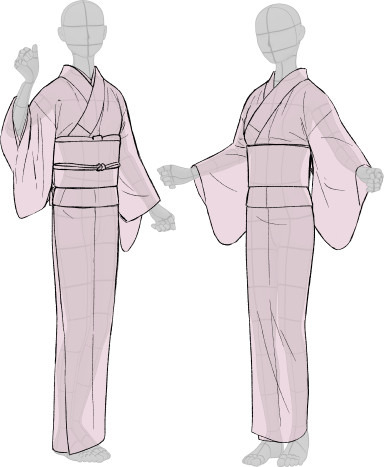
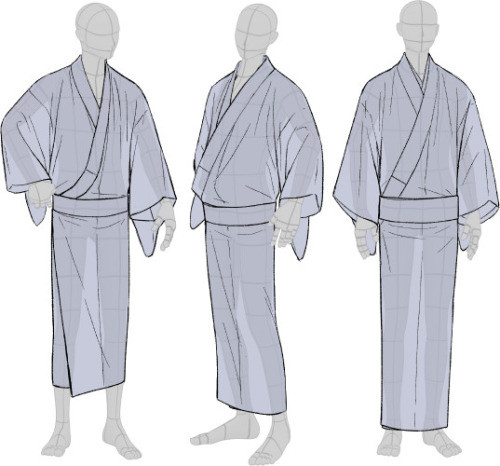

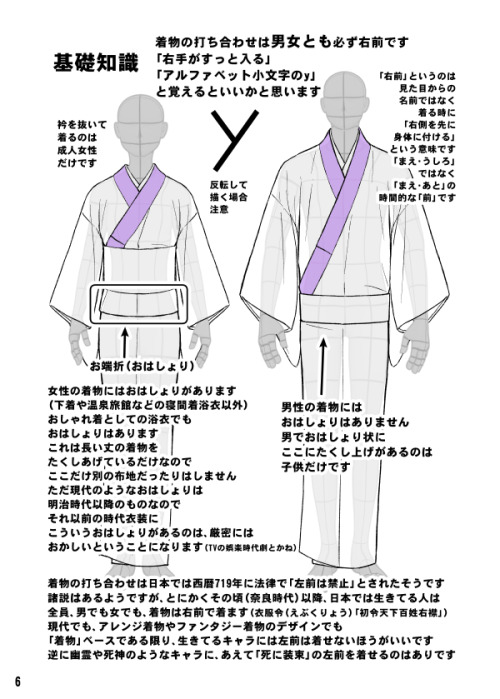
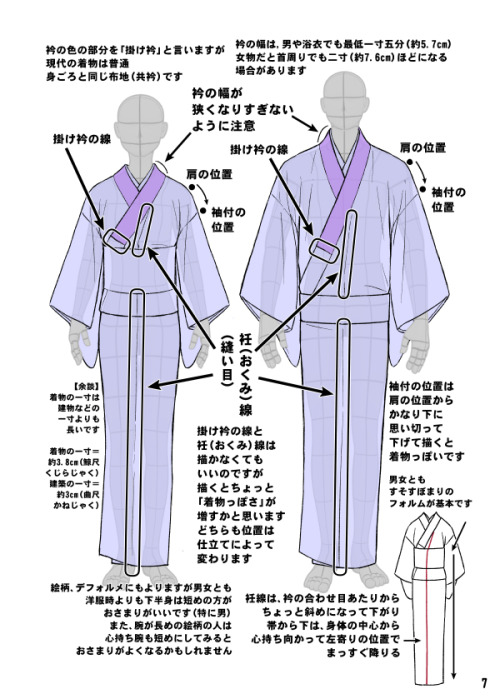
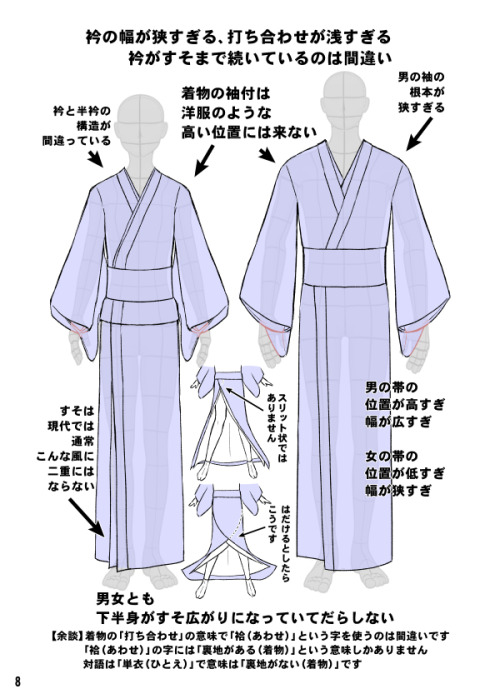
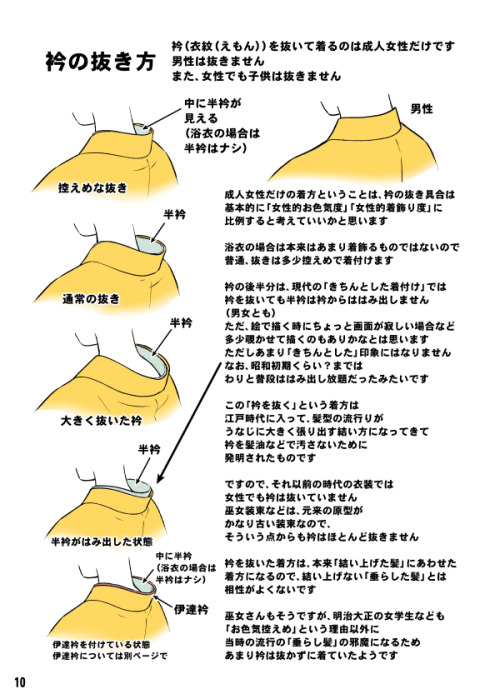

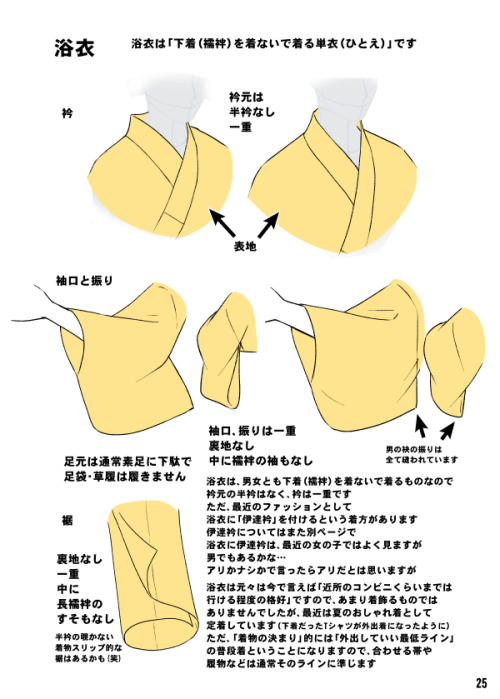
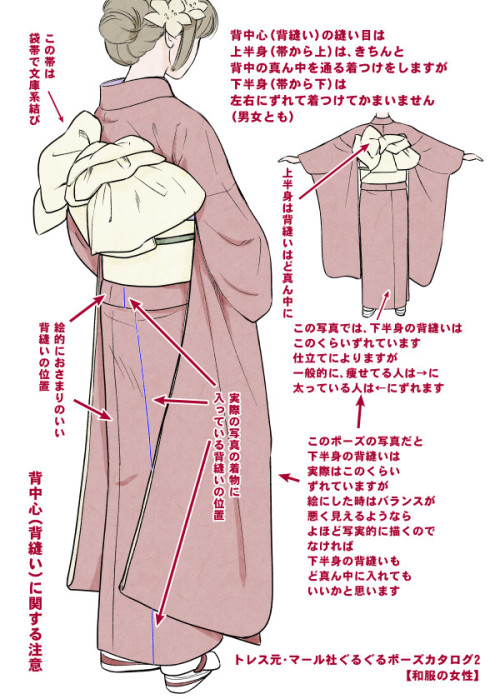
Kimono drawing guide ½, by Kaoruko Maya (tumblr, pixiv, site). Booklet is available in pdf for ¥ 900 here.
Here you can see:
female kimono and yukata (note how the juban underwear peeks when in kimono + how belts differ)
male yukata and kimono (note how the juban underwear peeks when in kimono)
dressing up: male (kimono is not closed yet) and female (kimono closed with datejime belt and ready to put on obi)
differences between female and male kimono once dressed (note how the collars and belts set)
common drawing mistakes (compare with previous picture: shoulders lines are too defined, there is a double hem, collars are narrow, belt is not at the right place etc)
women back collar (the lower the sexier) and men back collar (close to the nape)
back and sleeves differences between men and women
collars and sleeves and view of how kimono drapes around body
Furisode back (long sleeves kimono) and formal furisode obi knot example
Your Character’s Personality
Personality is the most important thing about your character.
So, whenever I see character sheets, most people just put a little paragraph for that section. If you’re struggling and don’t know what your character should say or do, what decisions they should make, I guarantee you that this is the problem.
You know your character’s name, age, race, sexuality, height, weight, eye color, hair color, their parents’ and siblings’ names. But these are not the things that truly matter about them.
Traits:
pick traits that don’t necessarily go together. For example, someone who is controlling, aggressive and vain can also be generous, sensitive and soft-spoken. Characters need to have at least one flaw that really impacts how they interact with others. Positive traits can work as flaws, too. It is advised that you pick at least ten traits
people are complex, full of contradictions, and please forgive me if this makes anyone uncomfortable, but even bullies can be “nice” people. Anyone can be a “bad” person, even someone who is polite, kind, helpful or timid can also be narcissistic, annoying, inconsiderate and a liar. People are not just “evil” or “good”
Beliefs:
ideas or thoughts that your character has or thinks about the world, society, others or themselves, even without proof or evidence, or which may or may not be true. Beliefs can contradict their values, motives, self-image, etc. For example, the belief that they are an awesome and responsible person when their traits are lazy, irresponsible and shallow. Their self-image and any beliefs they have about themselves may or may not be similar/the same. They might have a poor self-image, but still believe they’re better than everybody else
Values:
what your character thinks is important. Usually influenced by beliefs, their self-image, their history, etc. Some values may contradict their beliefs, wants, traits, or even other values. For example, your character may value being respect, but one of their traits is disrespectful. It is advised you list at least two values, and know which one they value more. For example, your character values justice and family. Their sister tells them she just stole $200 from her teacher’s wallet. Do they tell on her, or do they let her keep the money: justice, or family? Either way, your character probably has some negative feelings, guilt, anger, etc., over betraying their other value
Motives:
what your character wants. It can be abstract or something tangible. For example, wanting to be adored or wanting that job to pay for their father’s medication. Motives can contradict their beliefs, traits, values, behavior, or even other motives. For example, your character may want to be a good person, but their traits are selfish, manipulative, and narcissistic. Motives can be long term or short term. Everyone has wants, whether they realize it or not. You can write “they don’t know what they want,” but you should know. It is advised that you list at least one abstract want
Recurring Feelings:
feelings that they have throughout most of their life. If you put them down as a trait, it is likely they are also recurring feelings. For example, depressed, lonely, happy, etc.
Self Image:
what the character thinks of themselves: their self-esteem. Some character are proud of themselves, others are ashamed of themselves, etc. They may think they are not good enough, or think they are the smartest person in the world. Their self-image can contradict their beliefs, traits, values, behavior, motives, etc. For example, if their self-image is poor, they can still be a cheerful or optimistic person. If they have a positive self-image, they can still be a depressed or negative person. How they picture themselves may or may not be true: maybe they think they’re a horrible person, when they are, in fact, very considerate, helpful, kind, generous, patient, etc. They still have flaws, but flaws don’t necessarily make you a terrible person
Behavior:
how the character’s traits, values, beliefs, self-image, etc., are outwardly displayed: how they act. For example, two characters may have the trait “angry” but they all probably express it differently. One character may be quiet and want to be left alone when they are angry, the other could become verbally aggressive. If your character is a liar, do they pause before lying, or do they suddenly speak very carefully when they normally don’t? Someone who is inconsiderate may have issues with boundaries or eat the last piece of pizza in the fridge when they knew it wasn’t theirs. Behavior is extremely important and it is advised you think long and hard about your character’s actions and what exactly it shows about them
Demeanor:
their general mood and disposition. Maybe they’re usually quiet, cheerful, moody, or irritable, etc.
Posture:
a secondary part of your character’s personality: not as important as everything else. It is advised you fill this out after. Posture is how the character carries themselves. For example, perhaps they swing their arms and keep their shoulders back while they walk, which seems to be the posture of a confident person, so when they sit, their legs are probably open. Another character may slump and have their arms folded when they’re sitting, and when they’re walking, perhaps they drag their feet and look at the ground
Speech Pattern:
a secondary part of your character’s personality: not as important as everything else. It is advised you fill this out after. Speech patterns can be words that your character uses frequently, if they speak clearly, what sort of grammar they use, if they have a wide vocabulary, a small vocabulary, if it’s sophisticated, crude, stammering, repeating themselves, etc. I personally don’t have a very wide vocabulary, if you could tell
Hobbies:
a secondary part of your character’s personality: not as important as everything else. It is advised you fill this out after. Hobbies can include things like drawing, writing, playing an instrument, collecting rocks, collecting tea cups, etc.
Quirks:
a secondary part of your character’s personality, not as important as everything else. It is advised you fill this out after. Quirks are behaviors that are unique to your character. For example, I personally always put my socks on inside out and check the ceiling for spiders a few times a day
Likes:
a secondary part of your character’s personality, not as important as everything else. It is advised you fill this out after. Likes and dislikes are usually connected to the rest of their personality, but not necessarily. For example, if your character likes to do other people’s homework, maybe it’s because they want to be appreciated
Dislikes:
a secondary part of your character’s personality, not as important as everything else. It is advised you fill this out after. Likes and dislikes can also contradict the rest of their personality. For example, maybe one of your character’s traits is dishonest, but they dislike liars
History:
your character’s past that has key events that influence and shape their beliefs, values, behavior, wants, self-image, etc. Events written down should imply or explain why they are the way they are. For example, if your character is distrustful, maybe they were lied to a lot by their parents when they were a child. Maybe they were in a relationship for twenty years and found out their partner was cheating on them the whole time. If their motive/want is to have positive attention, maybe their parents just didn’t praise them enough and focused too much on the negative
On Mental and Physical Disabilities or Illnesses
if your character experienced a trauma, it needs to have an affect on your character. Maybe they became more angry or impatient or critical of others. Maybe their beliefs on people changed to become “even bullies can be ‘nice’ people: anyone can be a ‘bad’ person”
people are not their illness or disability: it should not be their defining trait. I have health anxiety, but I’m still idealistic, lazy, considerate, impatient and occasionally spiteful; I still want to become an author; I still believe that people are generally good; I still value doing what make me feel comfortable; I still have a positive self-image; I’m still a person. You should fill out your character’s personality at least half-way before you even touch on the possibility of your character having a disability or illness
Generally everything about your character should connect, but hey, even twins that grew up in the same exact household have different personalities; they value different things, have different beliefs. Maybe one of them watched a movie that had a huge impact on them.
Not everything needs to be explained. Someone can be picky or fussy ever since they were little for no reason at all. Someone can be a negative person even if they grew up in a happy home.
I believe this is a thought out layout for making well-rounded OCs, antagonists and protagonists, whether they’re being created for a roleplay or for a book. This layout is also helpful for studying Canon Characters if you’re looking to accurately roleplay as them or write them in fanfiction or whatever.
I’m really excited to post this, so hopefully I didn’t miss anything important…
If you have any questions, feel free to send a message.
- Chick
Making Your Characters Stronger
A lot of people confuse character strength with physical strength. It’s awesome if your female character can beat up 30 people in a room, but what does that actually tell us about her? There needs to be something more than just that.
So, how do you make your characters legitimately stronger? Here are a few tips to get your started:
Give them a goal
All characters should want something. It can be something small, like getting a good grade on a test, or it can be something big, like saving the world. Know your characters and what their goals are. This should help you shape the plot and prevent writer’s block.
Let them grow
Character growth is something that makes your story fascinating. Each character should make a change or grow, especially if you want your readers to root for them. This is usually the case with protagonists because common antagonist traits are that they are stubborn and they might not grow very much. Let us see your protagonist learn and become a stronger hero.
Define their character traits
You can make a character more relatable if you know what their traits are. Is your protagonist cautious? Are they afraid of failure? Are they lazy? Knowing specific details about your characters can help your story feel more real. You’ll actually get to know who your characters are and why they’d react a certain way.
Build relationships
Let your characters love or hate or have great friendships. Your character’s connection to other people in the story will help make them stronger. They’ll have more motivation to fight til the end and they’ll have something they care about. Don’t neglect these relationships.
Let them fail
A strong character doesn’t mean they do everything perfectly and lack struggle. Your characters need to fail. Most of us don’t get stronger by constantly succeeding. We fail, we pick ourselves back up, and we keep going. This will help keep your protagonist relatable and your readers will continue to root for their success.
-Kris Noel

Singing Strategies - Master The way to Sing
Listen to a broad selection of singers - the extra singing designs you hear the improved for you personally.

The majority of us love to sing, or at the least hum, while in the privacy of our residences and in no way consider essentially producing our singing talents any further than that. ‘Real’ singing is one thing reserved for the professionals. Should you have been hampered by this small gem of an excuse, chuck it away, far away and be hampered no far more. Singing is often a point of pleasure, something that lightens up the soul and you also shouldn’t let qualified considerations interfere with matters on the soul. In short, do not let any individual tell you it’s beyond you. Correct, a lot of people are born with an innately extraordinary voice, nevertheless it is feasible also to develop a reasonably great singing voice via proper vocal coaching. Keep in mind even though that you can build your voice only as far as your all-natural abilities permit, and you can - and should - sound only like oneself. Under no circumstances try out to sound like any on the established singers, on the other hand much you admire them. Produce your individual exceptional style. There is small point in placing all of your coaching efforts into getting to be an ersatz item.
There are different vocal teaching strategies, based around the kind of music you’d like to discover - classical, pop or anything else - and based as well on the singing instructor or vocal coach you chose. Owning the correct teacher makes an enormous big difference in your vocal teaching improvement, so it truly is essential to choose 1 with care. Preferably, obtain a vocal instructor who is well-established while in the music area and features a good numerous years of teaching experience. Search for a sympathetic, generous character too - you ought to delight in the procedure of singing, not build a dread about it from an over-critical, impatient instructor. Speak for the other students to discover about their practical experience and viewpoint around the singing classes. For those who have a really busy schedule and cannot discover time for you to commute to a vocal coaching studio, you are able to take singing lessons online. There are numerous websites that offer lessons, reside or otherwise, by way of a variety of interactive media.
When you begin your vocal lessons, allow by yourself be guided by your instructor on the correct breathing and singing tactics. Should you be going the online route, you may communicate with the instructor above the net and get their feedback on your efficiency. You must also listen to a broad variety of singers - if you’re undergoing classical vocal coaching, do not turn your nose up at pop, folk, reggae, rap, hip-hop and so forth, and vice versa; the extra singing designs you hear the better for you personally - and, don’t forget, practice, practice and practice. It is the only strategy to Carnegie Hall (or Broadway, for that matter), as the hoary joke goes.
Here really are a couple of singing strategies which will assist you sing greater:
Start your singing session by practicing your warm-up vocal workout routines. These will support totally free your vocal cords and you also will be capable to sing substantially much better therefore.
If you are singing standing up, make sure you preserve a great posture. Possessing the correct entire body posture will improve your capability to sing nicely.
When you’re just commencing out with singing lessons, don’t over-strain your voice. It’s critical to strengthen your vocal cords, so in the beginning continue to keep your practice sessions short, not over 20 minutes daily, then you’ll be able to increase these steadily.
If you are brief on self-confidence throughout a teaching session - it transpires to all of us sooner or later or the other - sing your most preferred song very first to break the ice after which tackle the others. You can find these somewhat easier then.
When finding out to sing from the right pitch, make sure to put in an equal work in creating your emotive variety. The motive great singers, like Pavarotti by way of example, are fantastic is simply because, aside from a great vocal array, they’ve the ability to connect on an emotional degree with their audience. To accomplish this, try out to relate towards the song lyrics. To do that, know the lyrics nicely firstly. Should you do not know what the words are or, worse, what they signify, how on earth have you been going to convey their that means?
-
 immimira liked this · 1 year ago
immimira liked this · 1 year ago -
 sislearning liked this · 2 years ago
sislearning liked this · 2 years ago -
 provavelmenteprocrastinando reblogged this · 2 years ago
provavelmenteprocrastinando reblogged this · 2 years ago -
 queerhistorymajor liked this · 3 years ago
queerhistorymajor liked this · 3 years ago -
 dying-unistudent reblogged this · 3 years ago
dying-unistudent reblogged this · 3 years ago -
 fillytoria liked this · 3 years ago
fillytoria liked this · 3 years ago -
 stillfeelingalive reblogged this · 4 years ago
stillfeelingalive reblogged this · 4 years ago -
 hopefulmelodys liked this · 4 years ago
hopefulmelodys liked this · 4 years ago -
 whitemourning liked this · 4 years ago
whitemourning liked this · 4 years ago -
 studyforcoffeebreakss liked this · 4 years ago
studyforcoffeebreakss liked this · 4 years ago -
 studyforcoffeebreakss reblogged this · 4 years ago
studyforcoffeebreakss reblogged this · 4 years ago -
 mudkyps reblogged this · 4 years ago
mudkyps reblogged this · 4 years ago -
 mudkyps liked this · 4 years ago
mudkyps liked this · 4 years ago -
 catlyyyy06 liked this · 4 years ago
catlyyyy06 liked this · 4 years ago -
 from-ivory-to-steel liked this · 4 years ago
from-ivory-to-steel liked this · 4 years ago -
 queencalcium liked this · 4 years ago
queencalcium liked this · 4 years ago -
 studyingformywaifu reblogged this · 4 years ago
studyingformywaifu reblogged this · 4 years ago -
 error-523scintilla liked this · 4 years ago
error-523scintilla liked this · 4 years ago -
 rachnadineo liked this · 5 years ago
rachnadineo liked this · 5 years ago -
 zairaurelia reblogged this · 5 years ago
zairaurelia reblogged this · 5 years ago -
 zairaurelia liked this · 5 years ago
zairaurelia liked this · 5 years ago -
 coffphe liked this · 5 years ago
coffphe liked this · 5 years ago -
 junie8368 reblogged this · 5 years ago
junie8368 reblogged this · 5 years ago -
 junie8368 liked this · 5 years ago
junie8368 liked this · 5 years ago -
 jam-study reblogged this · 5 years ago
jam-study reblogged this · 5 years ago -
 bluerosedragon01 reblogged this · 5 years ago
bluerosedragon01 reblogged this · 5 years ago -
 bluerosedragon01 liked this · 5 years ago
bluerosedragon01 liked this · 5 years ago -
 fluffybritishkitten liked this · 5 years ago
fluffybritishkitten liked this · 5 years ago -
 shortcakestudies reblogged this · 5 years ago
shortcakestudies reblogged this · 5 years ago -
 nuelangblr reblogged this · 6 years ago
nuelangblr reblogged this · 6 years ago -
 iinyaaa reblogged this · 6 years ago
iinyaaa reblogged this · 6 years ago -
 ntsknie liked this · 6 years ago
ntsknie liked this · 6 years ago
Right now this is just anything that comes to mind since I'm a complete noob at tumblr. I've been hearing about it for years but I never really felt like I had anything to say. Well all that has changed now and I figured I'd see what all the hype about tumlr is really about. Anyway don't take anything I say too seriously for now...I'll probably change it later when I become more comfortable with this website.
168 posts